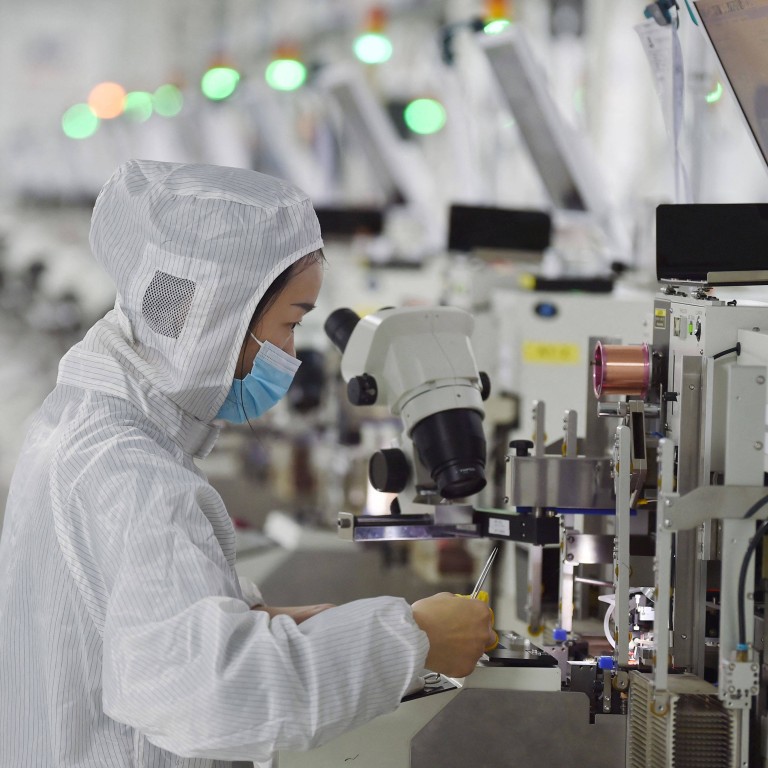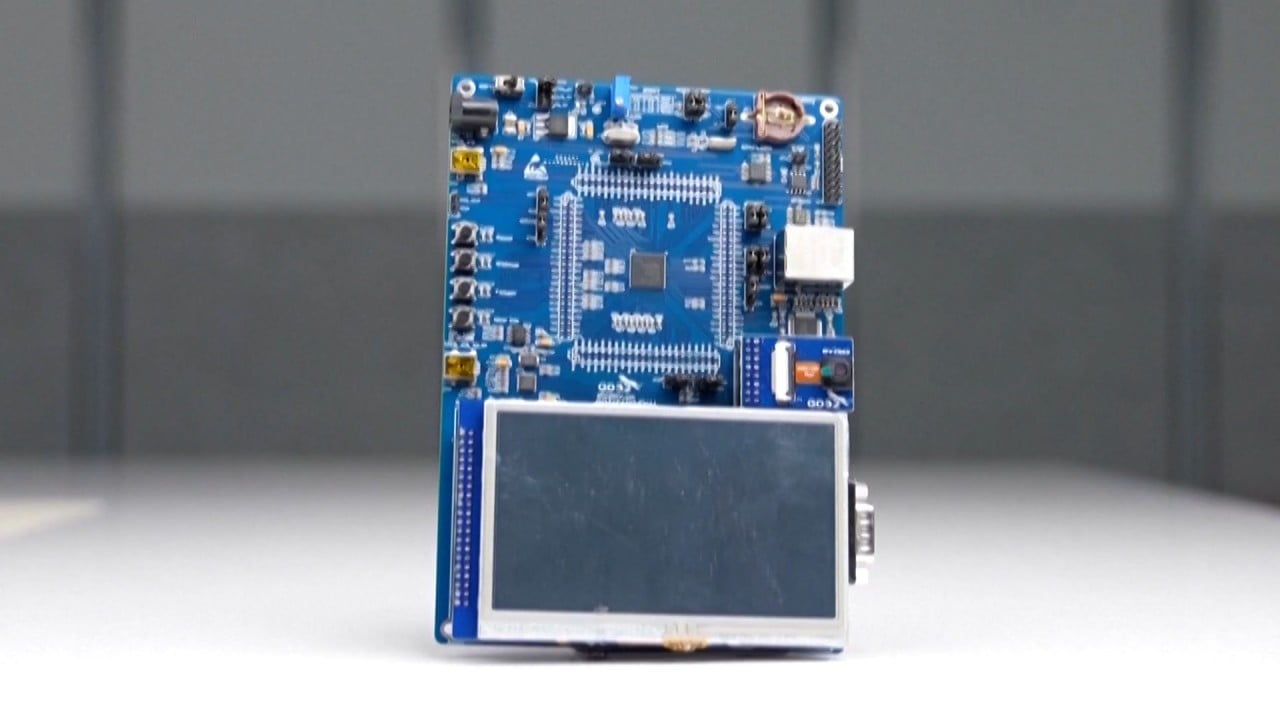
Japan restricts chipmaking equipment exports as US seeks to contain China
- The government will impose export controls on 23 types of leading-edge technology used to transform silicon into chips
- The move follows months of lobbying by the US to get Tokyo to join it in tightening shipments of semiconductor tools to Beijing
About 10 Japanese companies including leading gearmaker Tokyo Electron Ltd. would need to get licenses to ship a broader-than-expected array of equipment used to transform silicon into chips, spanning cleaning, deposition, annealing, lithography, etching and testing.
Tokyo’s move follows months of lobbying by the US to get Japan to join it in tightening shipments of semiconductor tools to China. Japan and the Netherlands had agreed in principle to join the US, but have sought to chart a middle road between the two superpowers.
Japan Trade Minister Yasutoshi Nishimura said the move was not in coordination with the US’s restrictions.
“If our exports are not being reappropriated for military use, we would continue exporting,” he told reporters on Friday. “We believe the impact on companies will be limited.”
South Korean chip giants dodge ‘worst-case scenario’ in new US proposal
Chip-related stocks fell on the news, with Tokyo Electron reversing gains to trade down almost 1 per cent. Nikon Corp., Screen Holdings Co., Lasertec Corp. and Advantest Corp. all pared gains.
The measures would improve oversight and cull potential military use of technology, trade ministry officials said. Exports to Japan’s most-favoured trading partners – which number around 40 and include Taiwan and Singapore, but exclude China – would not be affected, they said.
Shipments of restricted equipment to China would require sign-offs by export control officials.
Tokyo’s announcement came as foreign minister Yoshimasa Hayashi said on Friday he will visit Beijing for two days from Saturday to discuss a range of issues, including the detention of a Japanese man employed by Astellas Pharma.
Hayashi told reporters he will meet with his Chinese counterpart Qin Gang during the trip for “an honest and frank discussion to create a constructive and stable relationship”.
With the help of the Netherlands and Japan, the US is seeking to create a global blockade of key equipment now essential to make the most advanced chips used in quantum computing, advanced wireless networks and artificial intelligence.
Tokyo’s measures – which will be subject to public comment before implementation slated for July – affect a wide range of equipment, similar to the US curbs in scope. Etching machines that are capable of making 14- and 16-nanometre and more advanced chips would be affected, for instance.
The US, Netherlands and Japan together control critical equipment now necessary for China to make leading-edge chips.
The US has banned American gear suppliers Applied Materials Inc., Lam Research Corp. and KLA Corp. from shipping some of their most advanced technology to China. Japan’s Tokyo Electron and the Netherlands’s ASML Holding NV are the two other critical suppliers that the US needs to contain China’s technological ascent.
IT hub India seeks to chip away at China’s grip on electronics
Japan’s planned export controls include tools used to clean silicon wafers of impurities, extreme ultraviolet mask-testers, as well as immersion lithography machines. Screen Holdings, Lasertec and Nikon are suppliers of such equipment.
Over the long term, China will be forced to develop its own chipmaking machines, said Toyo Securities analyst Hideki Yasuda. “A complete decoupling of standards in chips would make it difficult for China to produce semiconductors at low cost.”
Beijing has said such restrictions threaten the stability of the global supply chain and that national security justifications are dubious.
Additional reporting by Reuters


